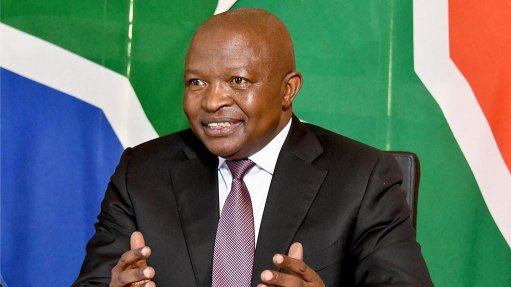
Deputy President David Mabuza
A new Land Expropriation Bill, gazetted on Friday and submitted to Parliament, is set to ensure the implementation of land redistribution and agricultural, human settlement and industrial development.
The announcement was made on Sunday by the Inter-Ministerial Committee on Land Reform, which consists of Minister of Agriculture, Land Reform and Rural Development Thoko Didiza; Minister of Justice Ronald Lamola and the Minister of Public Works and Infrastructure Patricia De Lille.
The Bill was drafted by the Department of Public Works and Infrastructure to be consistent with Section 25 of the Constitution and is aimed at replacing the Expropriation Act of 1975, which is considered unconstitutional.
The new Bill makes provision for land expropriation without compensation under clause 12(3),(4) which looks at cases where it may be just and equitable to not pay compensation for property expropriation, in the interest of the public.
The amount of compensation will be determined by South African courts.
Deputy President David Mabuza said on Friday that the publication of the Bill was a cogent indication that government is working to realise redress and fulfil the aspirations of the people for an equitable society.
“This Bill is recognition of the urgency required to address the injustices of the past and restore land rights in a responsible manner, whilst ensuring that food security is maintained; that equitable spatial justice is achieved; and that continuation of investment to expand our industrial base is secured,” said Mabuza.
Mabuza said that the Bill was meant to assist all organs of State, including local municipalities, where most vulnerable groups are located.
Local, provincial and national authorities will use legislation to expropriate in the public interest for varied reasons that seek to promote inclusivity and access to natural resources which will benefit women, children and people with disabilities, in accordance with the constitutionally compliant new Expropriation Act, he explained.
He further said that the holders of unregistered rights in the property must be treated on an equal and procedurally fair basis in the expropriation of such property.
“The Constitution provides that compensation for expropriation must be just and equitable, having regard to all relevant circumstances,” Mabuza assured.
Mabuza further highlighted that the expropriation of property with nil compensation was not a silver bullet.
“The Bill is only but one acquisition mechanism that in appropriate cases will enable land reform and redress, as agreed by the Presidential Advisory Panel Report on Land Reform and Agriculture,” he said.